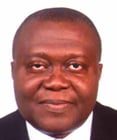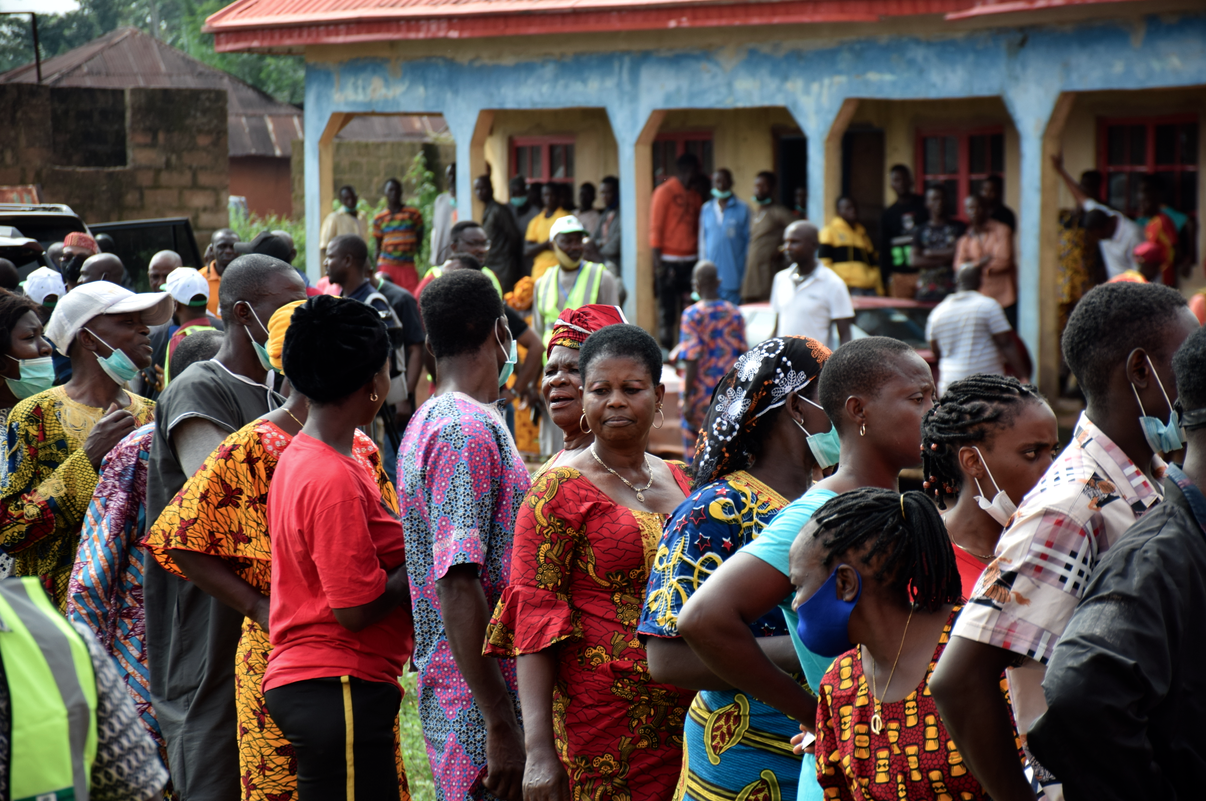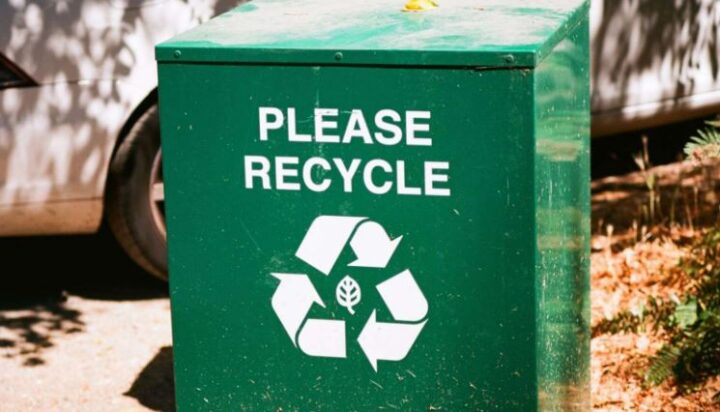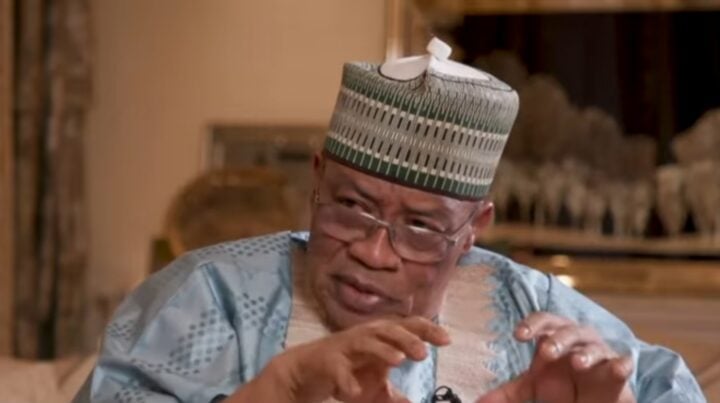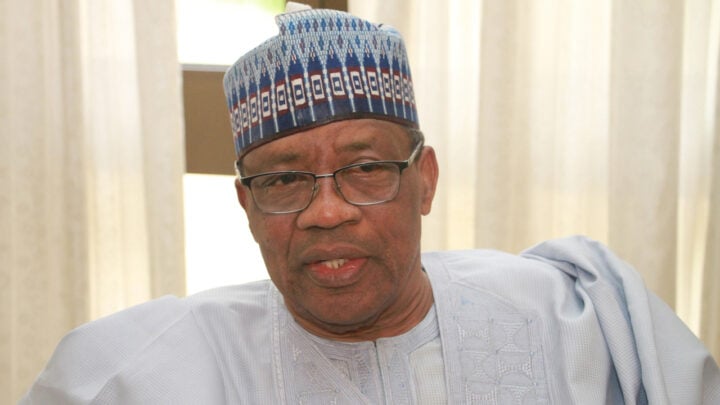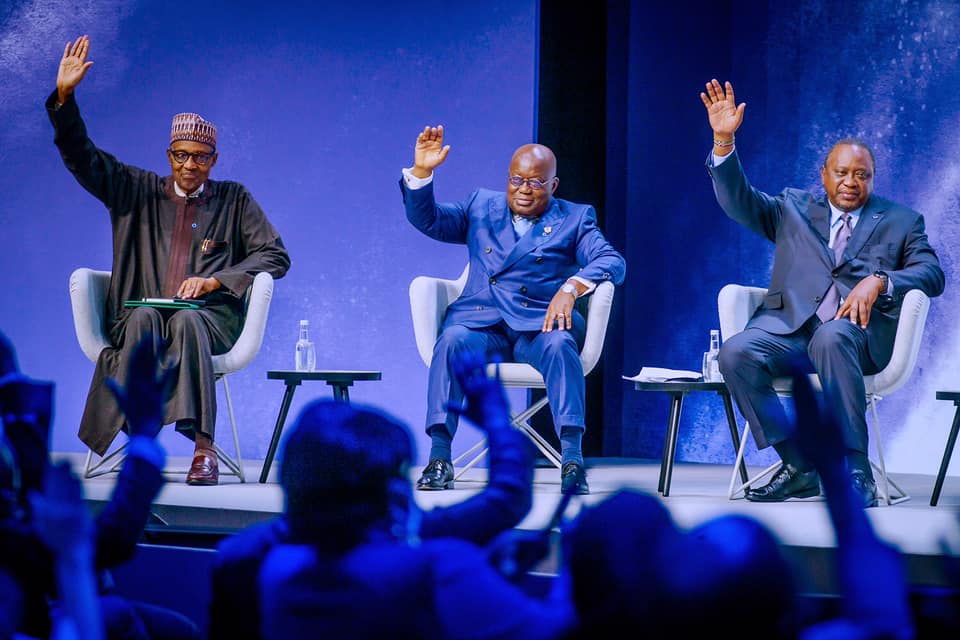Famous novelist, poet and critic, Chinua Achebe (1930 – 2013) was widely regarded for his magnum opus, ‘Things Fall Apart’, his first novel, which has been translated into several languages.
Even in death, Achebe is still standing tall and he is perhaps the most dominant figure in modern African literature. As a critic, Achebe was unsparing – both in content and style. In his book, ‘The trouble with Nigeria’, Achebe wrote: “The trouble with Nigeria is simply and squarely a failure of leadership. There is nothing wrong with the Nigerian land or climate or water or air or anything else. The Nigerian problem is the unwillingness or inability of its leaders to rise to the responsibility, to the challenge of personal example which are the hallmarks of true leadership.”
Although the book was written and published more than 20 years ago, Achebe’s thesis is still relevant and fresh as we worry about moving Nigeria forward in the “right direction.” In a nutshell, the prolific writer advocated for visionary leaders who have the reputational capital to create the enabling environment that can bring about “social and economic re-organisation.” But we must first change the thinking and social behaviour of Nigerians which must include a new set of values.
With good leaders, Achebe stated that Nigeria could solve its major problems such as tribalism, lack of patriotism, social injustice and the cult of mediocrity; indiscipline and corruption. The book was written to highlight these problems but it is important we solve them to protect the future of our children.
Advertisement
I also asked Toju Ogbe, a communications professional based in the UK on April 22 this year, to list what he considers to be Nigeria’s intractable problems. In my message to Ogbe who is currently a doctoral candidate in Leadership Studies with reference to Security and Development at the African Leadership Centre, Kings College, London, I said: “If we’re to fix Nigeria, kindly identify the key issues/problems framed in five broad areas.” This was his response: 1). Complex ethno-religious composition that gives rise to tribalism; 2). High power distance culture that makes institutional leaders see themselves as ‘Lords’ that cannot be questioned rather than as servants of the people; 3). Corruption on steroids; 4). Weak institutions, and 5). High illiteracy/poverty rate that makes it easier for the political elites to weaponise poverty.
Compared to what Achebe wrote, Ogbe was also speaking his mind and it means we know what our problems are. We need transformational and visionary leadership. The issues highlighted by Ogbe are not new but they have refused to go away. I’m always passionate about discussing how to make Nigeria a better place. So when Alhaji Abubakar Alhaji, Minister of Finance in the Second Republic, revealed recently that the International Monetary Fund (IMF) borrowed money from Nigeria in 1974, I found the story to be interesting and thought provoking. He confirmed that he signed the loan agreement on behalf of Nigeria when he was Permanent Secretary at the Federal Ministry of Finance.
Alhaji Alhaji went on to say that our over-dependence on oil and today’s huge cost of governance – at all levels of government – are some of the causes of the parlous state of the economy. There’s no doubt that our economy is still bleeding and we keep going in and out of recession. Unfortunately, the global pandemic has also not helped our situation.
Advertisement
We always knew that the winter season would come but how did we get here? Bad planning, wrong choices/priorities, egregious greed and corruption are largely responsible for Nigeria’s fall from grace to grass. It does not require rocket science to decipher our problems as Achebe and Ogbe did, nether do we need a soothsayer or prophet.
Let us be honest with ourselves and take heed from what the former Minister said. It does not matter that he‘s saying it now. Nigeria was so rich that we could borrow money to IMF. It is hard to believe because the story sounds like a fairy tale. It wasn’t that Nigeria won a lottery but the administration at the time went on a spending spree.
Nigeria had so much money in the 70s but we had just one problem: we didn’t know how to spend it. Why didn’t we turn Nigeria into an Eldorado? It was about the same period that Dubai, a famous destination for tourists, luxury shopping and eye-popping architecture, grew out of a desert.
At that time, our currency was very strong in the international market and you could exchange one US Dollar for 70 Kobo – less than one Naira. This was way back in 1974. Well, if you’re dreaming about this exchange rate compared to what we have today (about N520 to one USD while one pound sterling is exchanging for N715 – 47 years later), you better don’t wake up.
Advertisement
I raised this matter with my brother and associate, Akpandem James who is also the Chairman of the Editorial Board of Naija Times. James once worked in the forex department of a bank between 1980 and 1985 where he handled school bills. He told me that in the 80s up till 1987, Naira was stronger than the Dollar but lower than the Pound Sterling.
At that time, Nigeria was using the Pound Sterling with the same value with Great Britain before 1973 when the currency was changed. Even then, Naira exchanged at the same rate with the Pound but the Kobo was not at the same level with the Shilling. There was no equivalent for Pence. Twelve Pence made one Shilling and 12 Shillings made one Pound, whereas 10 Kobo was equal to one Naira.
According to James, it was the Udoji Award that pumped more money into the economy which resulted in a slight inflation that affected the exchange rate of the local currency and gave the Pound a slight edge over the Naira.
That was also when the Dollar moved up from 70 Kobo to 75 kobo and subsequently to 80 Kobo. Our economy was strong and buoyant which explained why we could borrow money to the IMF. We relied more on the non-oil sector with favourable balance of payment.
Advertisement
Unfortunately, we could not manage our fortune. The land that was flowing with milk and honey began to gradually dry up and we have not recovered from it since the 80s. The economic meltdown began towards the tail end of the Gowon administration and the Murtala/Obasanjo regime which initiated and implemented the Indigenisation Decree.
The initiative did not take into account the strength of local entrepreneurs. If a proper SWOT (Strengths, Weaknesses, Opportunities and Threats) analysis was carried out, GB Olivant, Leventis, J Allen, Lennard, Bata, Dunlop, BP, Essos and others would not have left Nigeria.
Advertisement
The last straw that broke the camel’s back was when the Babangida administration in 1986/87 swallowed the bitter IMF pills – the same IMF that borrowed our sugar-coated money in 1974 – of SAP, IFEM and SFEM hook line and sinker. If that wasn’t mismanagement of the economy, what do we call it? The economy took a nose dive and hit the rock: the Naira lost its vitality and became weaker.
Our exchange rate came crashing down and no administration since the days of IBB could save the Naira which has remained in free fall since 1987. Today’s exchange rate is over N500 to one Dollar. From all indications, the free fall likely to continue and only God knows what the exchange rate will be at this time next year.
Advertisement
In spite of all our challenges fueled by ethnicity, religion, lack of sincerity and broken trusting relationships, we can still get our groove back; we are better off as a united country but we must fix our expensive democracy first – it is not working. The current 36 states structure, according to Alhaji Alhaji, is breeding corruption and making government expenditure too high. He believes we do not need more than 12 states – the fewer, the better based on his own analysis — so that “we can cut our coat according to our size.”
Peter Obi, the former Governor of Anambra State, has always argued that we must bring down the prohibitive cost of governance. When he was in Government House in Awka for eight years, Obi proved that it was possible to cut out the fat from the annual budget and be able to run an efficient administration without piling up huge debts.
Advertisement
General Yakubu Gowon as Head of State created 12 states on May 5, 1967 out of the four regions that existed at the time. He had his reasons at the time but based on what we now know, it was clearly a mistake. How many states are truly viable? They head to Abuja every month to collect handouts otherwise they will not be able to survive. What we have is an over bloated bureaucracy.
If we stretch the argument by the former Minister further, we can compress the 36 states in six regions through an act of parliament similar to the regional structure we had in the past. We had the Western Region, Eastern Region and Northern Region before Midwest Region was created in 1963. I can predict that Nigeria will become more efficient and prosperous.
Each time we reflect on the glory days, you would expect our leaders from the time we could borrow money to IMF to now that doctors and university teachers go on strike at the drop of a hat to step forward and apologise to Nigerians.
They must accept responsibility for giving Nigerians grief, misery and pains. The pains are becoming unbearable by the day due to economic hardships that are tearing families apart. Nigerians deserve better. IBB cannot now in good conscience mount the pulpit and be preaching his sermons on Nigeria after ruining the economy and annulling a free and fair election. No IBB, I disagree; please stop your sermons and give us a break. You had your chance and you blew it before you were forced to step aside.
Nigeria is too big to but things are the way they are because we do not hold our leaders to account. We should not have room for incompetent leaders going forward. Nigeria is at a major crossroad today because of the comprehensive failure of leadership at all levels.
By “all levels”, I’m referring to the local councils, states/federal government and other key stakeholders. We discuss these issues all the time but nothing is changing; instead, things are getting progressively worse. However, a valid argument often made is that Nigerians are also part of the problem of Nigeria. We cannot keep blaming the leaders all the time when we are also refusing to take responsibility for our actions, especially our bad behaviour.
The visionary leaders we want will not fall from the sky – that would be wishful thinking. The task of nation building will be difficult if we fail to understand that our individual roles right from the family unit matter. But the point must also be made that leaders are the conscience of the society. It means they have a duty to set examples for followers.
I discussed the leadership crisis in Nigeria with Ambassador Ogbole Amedu-Ode, a seasoned diplomat and member of Naija Times Editorial Board who is also passionate about a Nigeria that works for everyone. Amedu-Ode explained that Nigeria enjoyed a relatively stable standard of living at independence in 1960 until the 80s. The news out of Nigeria was mostly positive and we became the toast of the world.
That was the Nigeria of our dream. However, what obtained then does not exist in contemporary times. In fact, it can be argued that the entire spectrum of our national life has been on the downward trajectory since then.
It is evident that the roles played by most political leaders, business elite, traditional rulers and religious leaders have been rather self-serving. As Achebe noted, we need a competent leader with a “no-nonsense reputation” to fix Nigeria. He should also be ready to lead by personal example. Who will that person be? Time will tell. May God bless Nigeria.
Braimah is the publisher/editor-in-chief of Naija Times (https://naijatimes.ng)
Views expressed by contributors are strictly personal and not of TheCable.
Add a comment
